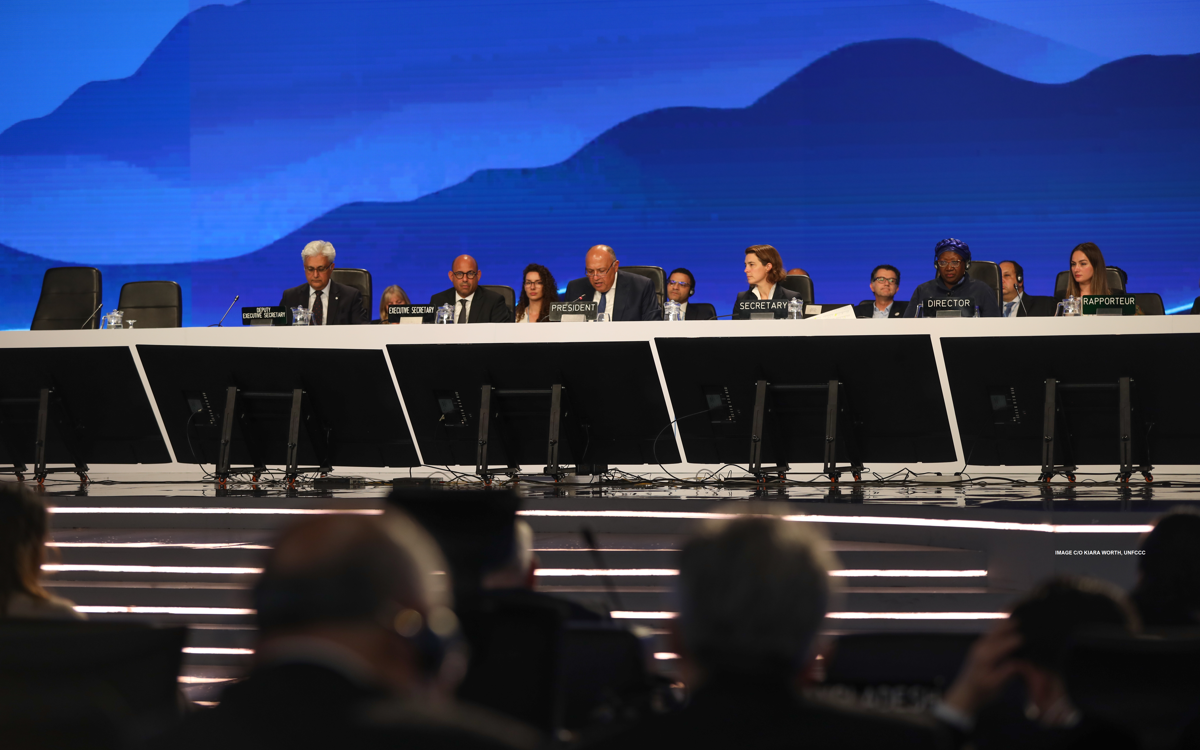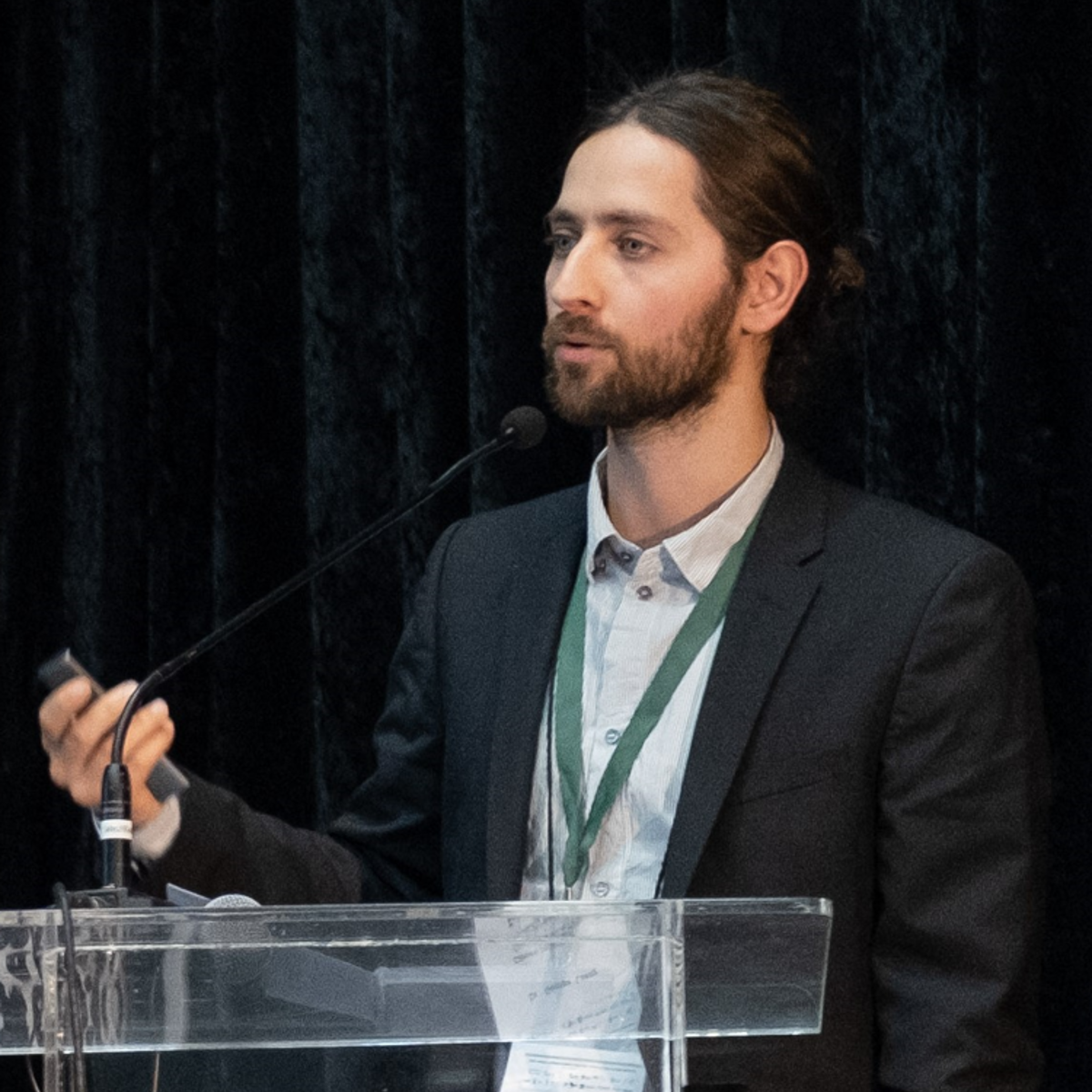

George Lakey
Programme Manager at the Association of Commonwealth Universities
Since attending COP27, I’ve been trying to forget about the very expensive catering, and a 9-hour wait in Sharm el-Sheikh airport and focus on what really matters.
I was in attendance with our 2021 Commonwealth Futures Climate Research Cohort, facilitating engagement with climate stakeholders from around the world. This was my first visit to a COP conference, and as well as supporting our cohort, I was also there to observe and explore the opportunities for ACU members to contribute to climate action at this global forum.
Before I explore this further, some background. COP is the biggest climate summit in the world and is facilitated by the United Nations (UN). Its long name is the ‘Conference of the Parties to the United Nations Framework Convention on Climate Change’. The 27 is the conference number, having first taken place in Berlin in 1995. It is the main decision-making body for the UNFCCC (United Nations Framework Convention on Climate Change), a treaty signed by 165 countries. These countries are the ’Parties’. In recent years, criticism of a perceived lack of inclusivity within the process has led to increased ‘non-party’ engagement. Universities and research institutions, civil society and non-governmental organisations, the private sector and youth groups now add to a maze of pavilions, side-events, and other spaces as ‘observers’ within the Blue Zone, giving them the opportunity to present, connect, and learn. There are also some limited opportunities to observe negotiations.
So, returning to the opportunities for our members. My initial observations were not overly positive. The space is vast, with countless organisations and individuals competing for their voice to be heard. It can be overwhelming, exhausting, and even disheartening, ‘how can I possibly be heard here?’.
Well, one way to get someone to hear you is by embracing the pavilions and spaces outside the formal negotiations. These are the areas where you can really connect with like-minded individuals and institutions who are passionate about addressing climate change. In these bustling hives, you’ll learn, you’ll be challenged, and you’ll most definitely be inspired. By spending even a small amount of time in these areas, you stand to strike up new relationships and sow the seeds for potential collaborations. There are countless presentations to listen to, that provoke reflection on your own experiences and activities, and there are calls to action and a sense of camaraderie to keep you going for at least the next 12 months.
Sadly, regardless of the rise of non-party actors, COP does not appear to be designed to allow new and alternate voices to the top table. The main purpose of COP is to bring together key governmental actors of the parties of the UNFCCC, to assess progress towards Nationally Determined Contributions (NDCs), and negotiate ongoing commitments, ultimately with the view to address the main causes of climate change and its impact. Those who are invited to engage, are usually already within the system, as members of party delegations, or UNFCCC constituencies such as RINGO (Research and independent NGOs), YOUNGO (Youth NGOs), et al. To meaningfully engage at COP, that is to actually contribute to negotiations and/or decision-making, you need to be within the process already.
So, what could be done to improve this? Thinking about the value our member institutions could add, here are just a few examples from a university perspective:
- National and inter-governmental organisations committing to involving universities within their processes (e.g., NDC tracking) as well as committing to strengthening the next generation of climate-related academics and their ability to contribute to the process.
- Universities orientating their strategies and incentives in order to better promote and support their academic and non-academic staff engagements with COP.
- Academics and non-academics from different disciplines, contexts, and sectors connecting and collaborating to conduct climate action-related research that is relevant to and packaged for the COP audience.
There are also significant barriers for our members with regards to general attendance. These include accessibility to the restricted Blue Zone, associated cost of attendance (financial, environmental and time) and COP’s aforementioned primary purpose.
We’d hope to see this change at future conferences, but the ACU has, and will continue to support our members through activities such as:
- Developing and implementing programmes, with and for our members, around three key areas:
- Leadership/strategy development
- Research support structures
- Supporting academics in a variety of ways through networking,training, funding, etc
- Raising awareness on how to engage with COP
- Facilitating connections and collaborations
With commitment from the individuals and institutions within our membership, we can collectively make a significant contribution to addressing issues related to climate change through COP. The ACU will continue to work towards supporting this endeavour.
If you have never attended a COP conference, and you get the chance, give yourself time to explore and take it all in. Engage early, throughout the year, and continue to engage year-on-year. The potential to expand your network and identify opportunities is vast. COP27 might have only just finished, but COP28 is just around the corner. Start planning and strategising for Dubai now. What work do you need to do now? Who do you need to (re)connect with? What will your contribution be? The urgency of situation needs you to be involved!
